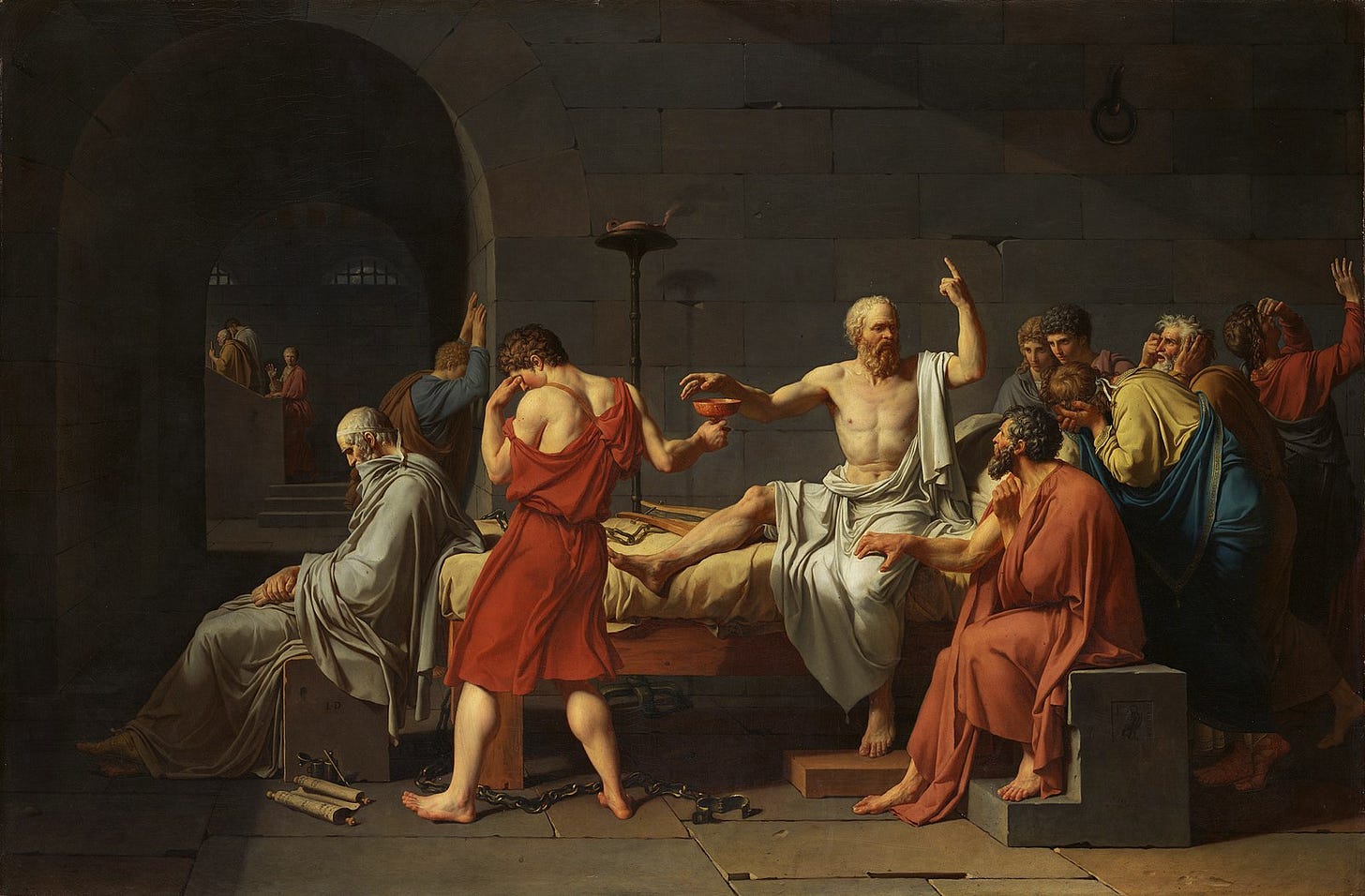
If education begins with the exposure of ignorance in the wise, it could be said that Socrates is an educator. If the verdict of the jury whose view could be taken to be the Athenian citizens, the trial and execution of Socrates is a clear case of government interference in the liberty of the individual to choose their teacher and the content of their education. It is this kind of interference that John Stuart Mill criticizes in Principles of Political Economy.
In an age where accusations of indoctrination and corruption are being leveled against administrators, teachers and institutions, turning to Plato's Apology and Mill's On Liberty and Principles of Political Economy might be beneficial.
It is interesting to note that Socrates grounds his approach to education in the divine. This seems necessary for the Athenians. But should religion be excluded from education for the sake of inclusivity in a multicultural setting where there are diverse conceptions of the divine?
Socrates says he's been accused of learning "all things in the sky and below the earth." By saying this he hints at the character of his accusers. They are the men who took advantage of the youths. They took advantage of their hearers' belief “that those who study these things do not even believe in the gods." They took advantage of people's childhood and adolescence. He says,
they spoke to you at an age when you would most readily believe them, some of you being children and adolescents.
They claim Socrates is corrupting the youth. However, they are the ones preying on the innocent.
Socrates says his accusers (before he stood before the jury) denied him the freedom to respond by shielding the people against what he had to say. Would a debate between Socrates and his accusers in the presence of the youths have been of any benefit?
According to Mill, government interference is of two types - an authoritative interference (an interference no one can avoid) and a non-authoritative interference (which, being optional, people can avoid). Mill gives an example of each type of interference. The first is making it binding on all parents to educate their children. The second is the provision of schools to which parents are not obligated to send their children. In other words, for Mill, the government can make the education of children a legal obligation for parents but the government shouldn't monopolize the creation of educational institutions or licensing of educators.
While there are secondary benefits to Mill's approach to education, his primary aim remains the development of individuality which must not be curtailed by the forces of tyranny. According to Mill, proper education should foster the growth of unique individuals, which is valuable in and of itself, rather than simply serving as a means to increase economic productivity. Socrates's approach to education is similar. His is a critique of the values and priorities of Athenian society. He argues that Athens' emphasis on wealth, status, and power is misguided. He claims that true wisdom and virtue can only be achieved through a life of philosophy and self-examination.




